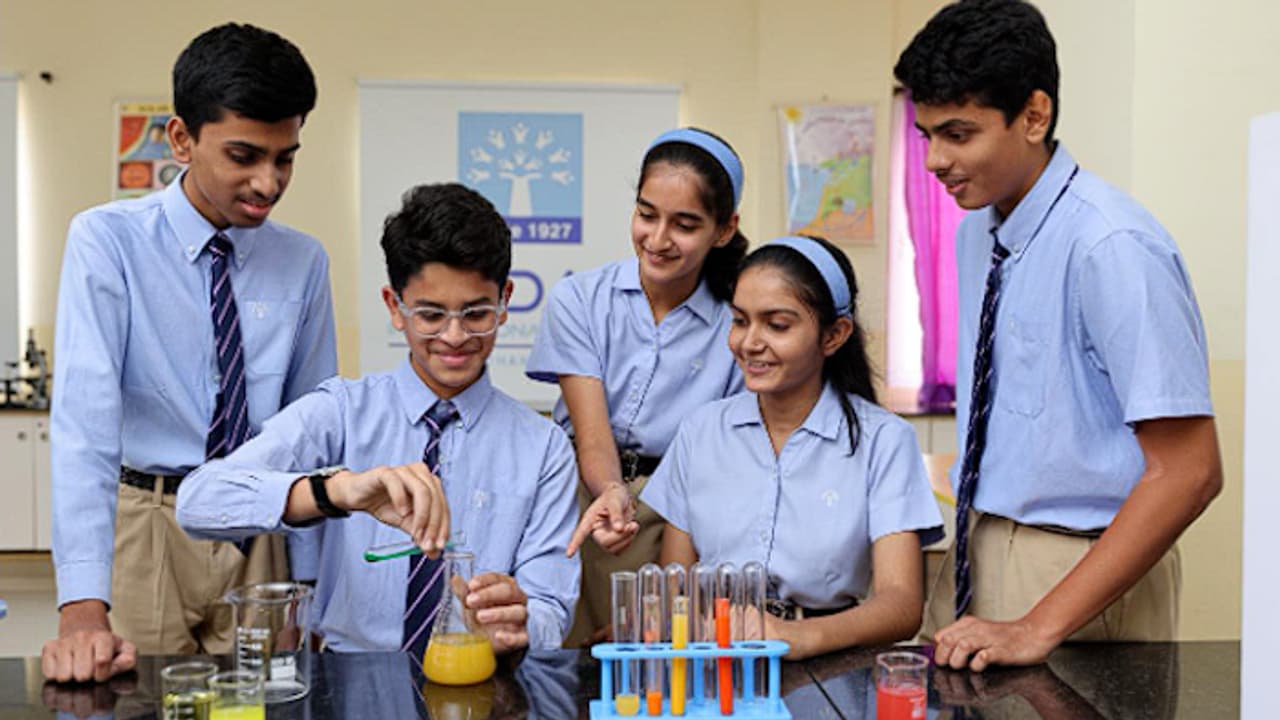Lab-based learning enables students to explore scientific concepts in real-world contexts. It provides them with practical, hands-on experiences.
KWs- CBSE Schools in Thane 1600, CBSE Schools admission in Thane 10
Lab-based learning is a valuable tool – it helps students grasp science and other subjects more effectively. While having the right equipment is important, parental involvement plays a crucial yet often overlooked role in its success. CBSE Schools in Thane, such as Podar International School, Thane, recognise that this hands-on approach not only engages students more deeply but also requires support from both teachers and parents. This collaboration is key to enhancing students’ learning experiences and understanding.
The role of parents in reinforcing lab-based learning
Lab-based learning enables students to explore scientific concepts in real-world contexts. It provides them with practical, hands-on experiences. When students receive support from their parents, which can range from facilitating discussions at home to providing additional resources, they can reflect on and better understand what they have learned in the lab. The CBSE Schools in Thane, such as Podar International School, Thane, recognise the connection between parent involvement and student success.
How can parents support their child’s lab-based learning at home?
Parents play a vital role in reinforcing and extending the learning that happens in the lab. There are many ways in which parents can contribute to a student’s lab-based learning at home. Here are a few practical suggestions:
- Discussing experiments: After a lab session, parents can engage in a conversation about what the child did in class. Rather than just asking about school, they can ask about the experiment they conducted in the lab. These questions spark curiosity, encourage critical thinking, and reinforce the lessons learned in the lab.
- Making real-life connections: One of the most valuable ways parents can help is by drawing connections between the experiments and the world outside the classroom. For instance, they can discuss how circuits work in household appliances. This can make the lesson feel more tangible and applicable.
- Promoting a growth mindset: Parents can emphasise the importance of trial and error in scientific discovery and offer praise for effort and perseverance, rather than just the outcome. This helps build resilience and a growth mindset, which is crucial for success in experimental learning.
- Providing a conducive learning environment: At home, parents can ensure that a child has a quiet, well-lit space to study and work on experiments. A distraction-free environment helps students focus on their assignments and reflect on what they’ve learned. Parents can also assist in creating a small home lab or providing the necessary tools for simple experiments.
- Encouraging teamwork: Lab-based learning often involves collaboration with peers. Parents can help a child develop teamwork skills by encouraging group study sessions or collaborative projects at home. When a student works together on a science project with friends or family, it enhances their communication skills and the ability to share ideas.
- Celebrating achievements: When parents recognise a child’s success in completing an experiment or understanding a difficult concept, it enhances their confidence. Whether they do it through a small reward or by simply praising their progress, this positive approach can be highly effective.
- Being curious together: Parents and children can explore new scientific topics as a team. They can read science books, attend science fairs, or take online courses together to deepen their understanding and strengthen their bond. This collaborative approach also strengthens the parent-child relationship.
Lab-based learning is an incredibly effective teaching method that provides students with hands-on experiences. These can enhance their understanding of science and other subjects. However, students can learn their true potential only when parents actively participate in the process. CBSE Schools in Thane, like Podar International School, Thane, recognise the importance of collaboration between teachers and parents.
For more information on their CBSE Schools admission in Thane, you can contact them at:
Email Address: [email protected]
Telephone No: 9511943540
